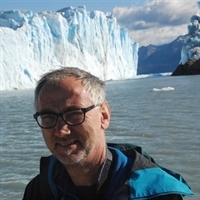Ecotourism in Botswana
The northern part of Botswana largely consists of national parks and forest reserves. The Chobe national park and Savuti nature reserve, the Okavango Delta, the Zambezi river and Victoria Waterfalls are located fairly closely together and are popular destinations for people who want to go on safari in Africa.
Researchers from Wageningen University & Research and colleagues from the University of Botswana together with local experts and stakeholders developed a land-use plan for the Chobe District in northern Botswana to promote the development of good, sustainable and long-term jobs and to ensure that local residents benefit more from wildlife tourism.
“Local people shouldn’t only bear the brunt of the nuisance of wildlife, but should also benefit from the tourism related to this”
Most people live around Kasane, the capital of the Chobe District along the Zambezi. Following the construction of the bridge over the Zambezi, Kasane quickly developed into a place of transit, as it is located on the border with Zimbabwe, Namibia and Zambia. The rest of the population is spread over a number of small nearby villages. Most of the residents are employed in the farming sector.
The Big Five in Botswana
Nearly all large African animals can be found in this region, including the ‘Big Five’: lions, leopards, rhinos, elephants and buffalo.
 In the last 25 years, the number of elephants in this area has increased phenomenally. The large number of elephants and lions are becoming an increasing danger for people, crops and livestock. The farmers’ existence is already under threat from irregular rainfall and low yields from low-quality soil, and a herd of elephants can destroy a year’s harvest in just one night. Lions and hyenas also regularly kill cows and goats, and sometimes even people. The tension between residents and environmentalists is increasing as a result.
In the last 25 years, the number of elephants in this area has increased phenomenally. The large number of elephants and lions are becoming an increasing danger for people, crops and livestock. The farmers’ existence is already under threat from irregular rainfall and low yields from low-quality soil, and a herd of elephants can destroy a year’s harvest in just one night. Lions and hyenas also regularly kill cows and goats, and sometimes even people. The tension between residents and environmentalists is increasing as a result.
Luxury accommodation
There is little work other than farming. The tourism sector provides the local population with few jobs and income opportunities. Currently, there are predominantly luxury accommodations, including lodges. The choice to target the luxury segment and not mass tourism has been positive for the environment and the income derived from tourism in Botswana. However, this has resulted in many foreign companies running the tourism industry in Botswana with most of the staff being foreign as well. Furthermore, in some places there are now so many tourists that it threatens the environment and the unique wildlife experience.
Land-use planning
Experts and local stakeholders developed an integrated land-use planning for the Chobe district. This is an umbrella plan for the entire region in which the landscape is assessed together with land use, with the aim of resolving the conflicts that currently exist between nature and humans and other spatial issues.
Sustainable tourism as the cornerstone of the economy
The plan identifies the current land use, what is available in terms of natural resources (soil, water, forests, wildlife) and in which types of land use most of the conflicts and problems arise. The researchers also looked at the objectives of the government and the relevant laws and policies. Sustainable tourism has been an important cornerstone for the Botswana economy for many years.
The research showed that the soil and climate in this region provide little potential for agriculture, livestock farming and forestry. There have been plans to extend a nationally important commercial farming area, Pandamatenga, further north for many years. However, the research showed that expansion could best be done in a westerly direction. In this scenario there would be no conflicts with the wildlife migration into Zimbabwe and prevents an irreparable disturbance to the water management in this area.
Small-scale overnight stays
The researchers have found opportunities for ecotourism in several parts of the Chobe district. This would include small-scale, cheap overnight stays in less vulnerable areas. These more simple accommodations can be run by the local communities themselves. This expansion results in local income and a more balanced distribution of tourists.
- Read the article in Wageningen World
- Summary of the research (English) Integrated Land Use Planning. Combining Communities, Wildlife and Tourism
- Report (English): Chobe District Integrated Land Use Plan.
- The maps of the Chobe District, produced by Wageningen Environmental Research.


What are some of the challenges of the eco tourism product development and marketing??
Indeed ecotourism has the potential to change our tourism landscape. We need our communities to participate and benefit from our natural resources.